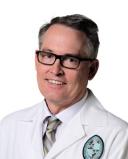Health
How Do I Find Mental Health Providers?
For Mental Health Awareness Month: How to sort out providers by credentials
Posted May 3, 2020 Reviewed by Kaja Perina

This is a guide for consumers (i.e., patients) to understand the credentials behind clinicians’ names based on the way you search for clinicians and what different clinicians can actually do. By credentials, I mean the abbreviations following the last names, i.e., MD, PhD, and LCSW.
The most comprehensive list I found on the internet was an overwhelming list of 154 different credentials you could see listed after someone’s last name (titled “credential abbreviations” at NetworkTherapy.com). The most basic thing I think you need to know is that these credentials can be organized into three main categories:
- Academic degrees from universities (nearly 30 types)
- Licenses to practice controlled by the states (>40 types)
- “Extra-training” certifications and registrations from specialty professional organizations (>80 types).
There are at least two other reasons why the credentials are confusing. First, there is a lack of standardization across disciplines. For example, an MD and DO are the highest university degrees physicians can achieve but they are not given an additional state license credential, whereas an MSW is the highest university degree social workers usually achieve but they obtain an LCSW credential once they achieve state licensure to practice. Second, some disciplines tend to publicize their “extra-training” credentials for certification as supervisors of trainees (LPC-S, BACS), passage of national board exams (NCC), or registrations from special training programs (RPT), whereas others do not. Despite the different meanings of all these types of credentials they are strung together after last names with no easy way to distinguish between them.
Many writers have already posted summaries of credentials and I really didn’t want to reinvent the wheel. The existing summaries were helpful but often were not easy to sort through. I wanted to write a summary that answered the question, “If I am a consumer searching for help, what do I look for?” At the broadest level, you are likely to search primarily based on your needs for medication, testing, or psychotherapy.
Medication
Look for MD, DO, or NP. Medical Doctor (MD) is a university degree from medical schools. Doctor of Osteopathic Medicine (DO) is a university degree that is equivalent to the better-known and more common MD and it is recognized in all 50 states. After achieving the MD or DO university degree, doctors enter specialty residency training programs, including psychiatry. They are then called psychiatrists (not psychologists).
Nurse Practitioner (NP) is a license granted by states to nurses who have achieved special education and training.
Several states also allow psychologists (PhD) to prescribe medications with extra training.
Testing
Look for PhD or PsyD. By testing, I mean a battery of standardized tests that attempt to be objective and assess for minimum and maximum capacities to compare against standardized population norms. For children, this can be psychoeducational testing for overall IQ and specific developmental disabilities in speech, language, reading, math, and sensory processing. In children or young adults, this can be to untangle anxiety from ADHD. This can be for neuropsychological testing to understand the extent of brain injuries, and is often used in legal cases.
(Note: By testing, I am not referring to the collection of self-administered questionnaires for depression, anxiety, or other problems in the routine course of clinical evaluations. Any discipline is allowed to collect and interpret those).
Doctor of Philosophy (PhD) is a university degree. PhD is awarded across many academic fields (chemistry, engineering, etc.) and psychology is one of those fields. After obtaining the PhD, individuals must obtain additional experience, pass national boards, and pass state boards to receive a state license in order to formally call themselves psychologists (not psychiatrists).
Doctor of Psychology (PsyD) is very similar to a PhD in psychology but has some differences. The PsyD alternative was introduced in the 1970s for students who were less interested in conducting research and more interested in providing direct patient care.
Psychotherapy (Counseling)
This is where it can get confusing. The three most common providers of psychotherapy are by far LCSW, LMFT, and LPC, but MD, DO, PhD, and PsyD are also well-qualified.
Licensed Clinical Social Worker (LCSW), Licensed Marriage and Family Therapist (LMFT), and Licensed Professional Counselor (LPC) are state licenses (there are some variations in these titles between states).
LCSW, LMFT, and LPC have completed similar paths that usually include four-year undergraduate university education, then a two-year master’s degree, and then additional experience of supervised clinical work with patients.
What about all those “extra-training” achievement credentials?
Perhaps the most important thing to know is that none of them are required to practice. The extra credentials are, as we say in Louisiana, lagniappe. They may or may not be helpful when searching for help. Are you looking for the “best” psychotherapist? An LPC who took the optional national board exam to achieve the extra NCC (National Certified Counselor) credential might be better than the average LPC, but not all good LPCs have opted to take the NCC exam. Are you looking for play therapy? A therapist who underwent optional training to get the extra RPT (Registered Play Therapist) credential from the Association for Play Therapy may be better trained than average, but not all therapists who conduct good play therapy opted to pursue RPT training.
How do I find the best clinicians?
There is no simple answer. Probably the most common way to find the best clinicians in your community is, for better or worse, by word of mouth. Ask friends, internists, pediatricians, and other types of primary care providers for recommendations. There is no single answer for who is the best for making diagnoses or conducting treatment. MDs have the longest and widest breadth of training across all medical syndromes. PhDs have the most intense training in psychological theory and research. LCSWs, LMFTs, and LPCs who have practiced for many years may have the most in-depth counseling experiences with patients in the office.
It really depends on the individual clinician (which I have written about in a previous post titled Four Reasons Why Potential Patients Do Not Seek Treatment, December 27, 2017). Much depends on the personal attributes of the clinicians, their additional specialty training, and their years of individual experiences as clinicians.
To find a therapist or mental health professional near you, consult the Psychology Today Therapy Directory.




